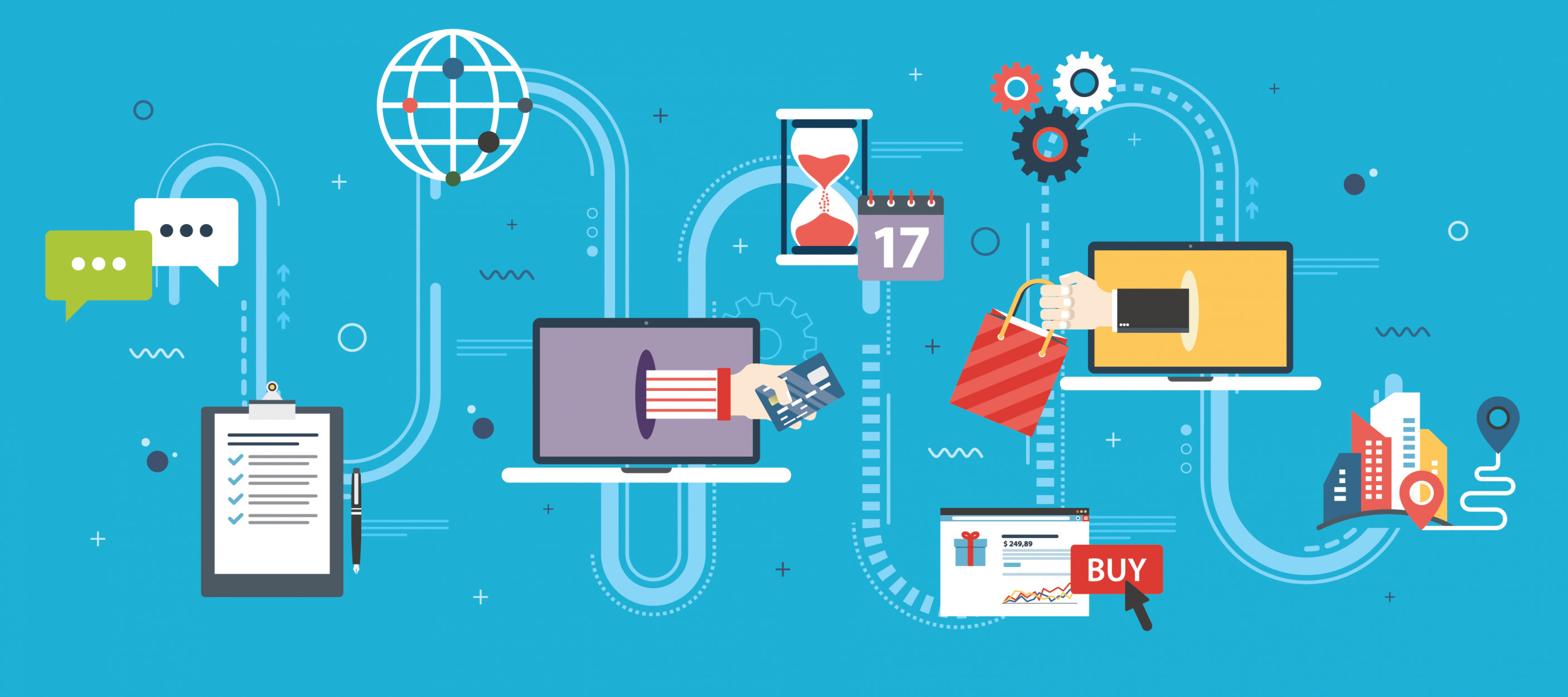The concept of shopping has completely transformed in the last decade. Across the globe, consumers are focusing on online purchases because of the convenience these transactions offer.
The rapid rate of internet adoption has given rise to a new segment of consumers – online shoppers. These shoppers demand fast, convenient, and time-efficient shopping processes and the retail industry has been quick to adapt to these new demands. By 2021, the global retail e-commerce industry is set to achieve $4.48 trillion in sales.
The global eCommerce system can be classified into three categories -
- B2B eCommerce – Marketing and selling products/services on the internet from one company to another.
- B2C eCommerce - Business to the Consumer eCommerce is the most common form of eCommerce involving transactions between consumers and businesses.
- C2C eCommerce – A relatively new form of business involving two or more customers who meet on digital platforms to seek out trade opportunities.
These eCommerce models will dominate global trade for the next decade. Top brands have already solidified their statuses as reputable eCommerce vendors. Businesses looking to compete must invest in eCommerce Website Development. The potential advantages of having an efficient digital platform for eCommerce purposes include -
Supply Chain Management
Providers of eCommerce web services make it very easy for companies to manage their stock. These experts add tools to the eCommerce platform that facilitates these functions -
- IoT sensors keep constant track of inventory movements.
- Real-time stock management is possible because of these trackers.
- The supply flow can be streamlined as automation reduces the risk of human errors in transporting or reordering items.
- Product data is automatically stored and updated (product type, manufacturing date, etc.).
- Careful allocation of products reduces the risk of customer dissatisfaction. Errors such as wrong orders or products going out of stock after ordering are eliminated.
- Eliminate overstocking as suppliers are automatically notified when the stock reaches the reorder level.
An uninterrupted supply chain is a key to eCommerce success. eCommerce Web Development experts make sure that every aspect of the supply chain is tracked, assessed, and improved with each delivery from production to delivery. It doesn’t take much to irritate or demotivate a modern shopper from online shopping.
Constant ‘out of stock’ messages or failed/delayed deliveries are bound to drive away customers. An efficient website with high-quality supply chain management features can permanently eliminate such issues.
Competing with Other Businesses
Even though shopping on eCommerce platforms is still a relatively new trend, it will become the norm in the future, given that millennials prefer online shopping over other traditional ways of buying goods.
In such market conditions, teaming up with an eCommerce Website Development Company is almost a necessity for businesses aiming to make the most of online sales.
Plus, eCommerce platforms give businesses a chance to step out of their location-bound brick and mortar setups and step into the world of global retail.
Of course, maintaining a local presence will always be important. But, complementing local sales with offshore online purchases gives businesses a chance to radically improve their finances.
Most small and medium-sized companies are already doing it. It’ll be impossible for businesses with no or poor eCommerce presence to compete in the market in the future.
Brand Boost
eCommerce platforms give companies a brand boost. For instance, an eCommerce web platform will require all shoppers to register as consumers. Companies can use this customer data to refine their future processes.
Hence, simple features on eCommerce platforms such as sign-in options or social media integrations have a massive impact on the business’s long-term future. Shoppers who use these options get exposed to the company’s social profile. The brand name gets registered forever in the minds of the consumer.
Brand Boost by Association
Similarly, users will associate the quality of the eCommerce platforms with the brand. A highly efficient and easily navigable eCommerce site will leave a positive impression on shoppers.
Some features that can boost brand value include –
- Useful content
- The ability to bookmark products
- Secure payments options
- Dedicated customer support system
Lowering Costs
Lastly, adding an eCommerce component to a business’s existing commercial model helps companies reduce expenses.
Setting up an eCommerce store is a low-risk investment that cuts business expenses by -
- Free ad space – The eCommerce store acts as a direct marketing channel. Shoppers are made aware of new products, offers, etc. directly from the company app. There’s no need to invest in traditional advertisement channels. Companies can even use a blend of their ads and ads from affiliate companies. By doing so, they can earn ad-revenues of their own.
- No Staffing – eCommerce stores don’t need personalized staff-assistance. Top eCommerce platform developers add features like chatbots that automatize the customer service process.
- Upgradable – Unlike traditional stores, web stores are easy to maintain and upgrade. Leading providers of eCommerce solutions constantly monitor their creations to ensure smooth operations. They update the store with new features.
Overall, eCommerce platforms improve sales and enable businesses to collect, synthesize, and assess customer information. In the long run, improving customer experiences guarantee returns and improvements in brand value!





